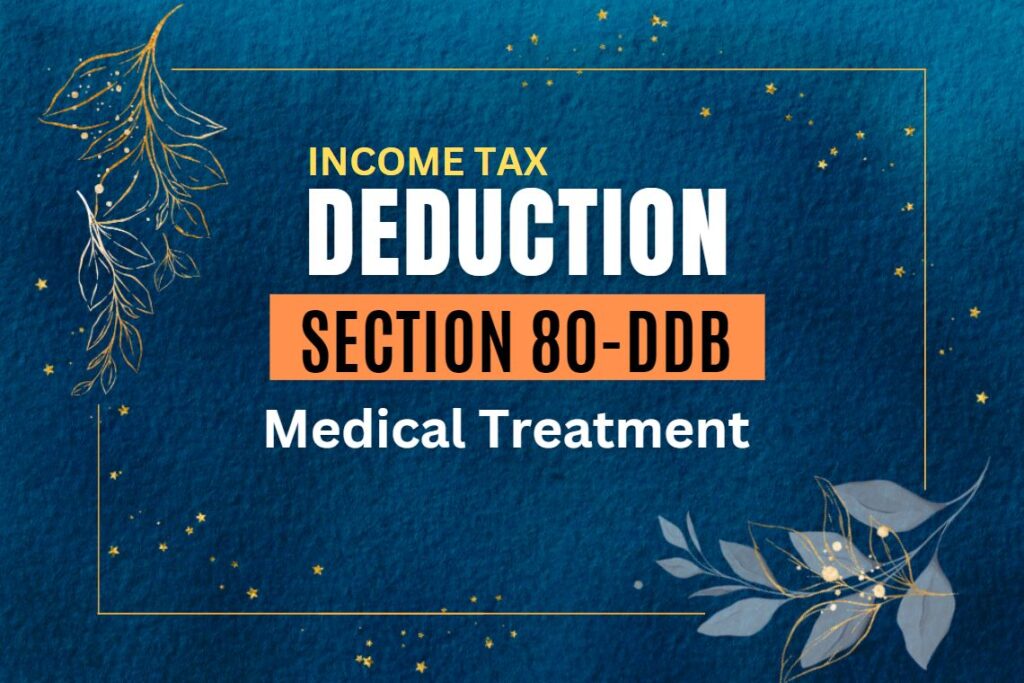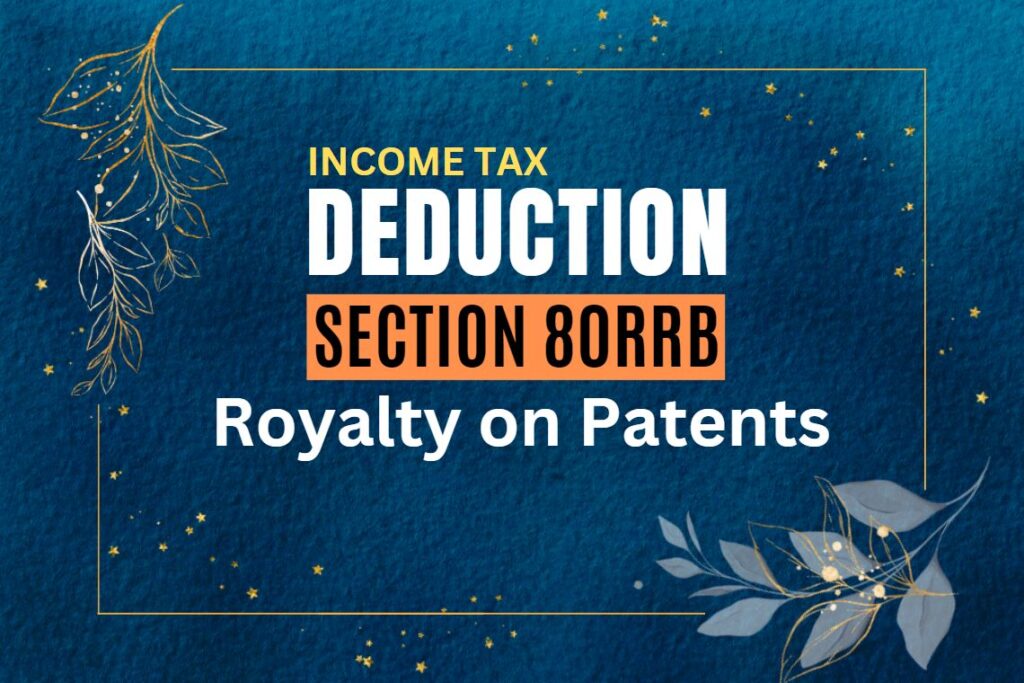Section 80DDB of the Income Tax Act in India provides a deduction for individuals and Hindu Undivided Families (HUFs) in respect of expenses incurred for the medical treatment of specified diseases for themselves or their dependents. This section aims to provide financial relief to taxpayers who have incurred substantial medical expenses for specific illnesses. Here are the key details about Section 80DDB:
Eligibility Criteria
To claim the deduction under Section 80DDB, you need to fulfill the following eligibility criteria:
- You must be a resident individual or a Hindu Undivided Family (HUF).
- You must have incurred medical treatment expenses for yourself or your dependents.
- The medical treatment should be for specified diseases or ailments as prescribed by the Income Tax Act.
- You must have obtained a prescription for such treatment from a specialist doctor.
Specified diseases or ailments:
The list of specified diseases or ailments is given in Rule 11DD of the Income Tax Rules, 1962. Some of the common specified diseases or ailments include:
- Cancer
- Neurological disorders
- Heart diseases
- Kidney diseases
- Blood disorders
- Mental disorders
- Genetic disorders
- Cancer
- Chronic Renal Failure
- Neurological Diseases where the disability level is 40% or more.
- AIDS
- Chronic Obstructive Pulmonary Disease
- Acquired Immune Deficiency Syndrome (AIDS)
Amount of Deduction
The amount of deduction that can be claimed under Section 80DDB varies depending on the age of the individual and the actual expenses incurred. The deduction can be claimed as follows:
- For individuals below the age of 60 years, the maximum deduction allowed is Rs. 40,000.
- For individuals who are senior citizens (above 60 years but below 80 years), the maximum deduction allowed is Rs. 1,00,000.
- For super senior citizens (above 80 years), the maximum deduction allowed is Rs. 1,00,000.
Documents Required
To claim the deduction under Section 80DDB, you need to submit the following documents:
- Patient’s prescription from a specialist doctor specifying the disease or ailment.
- Medical bills and receipts for the expenses incurred.
- Medical certificate in Form 10-I from a specialist doctor.
Mode of Payment:
Payments for medical treatment can be made in any mode, including cash.
No Need for Actual Expenses:
Unlike some other deductions, Section 80DDB does not require the taxpayer to provide proof of actual expenses incurred for the specified diseases. The deduction is based on the prescribed authority’s certificate and the maximum deduction limits.
Claiming the Deduction
To claim the deduction under Section 80DDB, you need to file your income tax return using Form ITR-1 or Form ITR-2. You should mention the amount of deduction claimed under Section 80DDB in the relevant section of the income tax return form.
Example:
Let’s say Mr. X is a 50-year-old individual. He has incurred medical expenses of Rs. 50,000 for the treatment of cancer.
Mr. X is eligible for a deduction of Rs. 40,000 under Section 80DDB, as he is below the age of 60.
Important Points to Note
- The deduction under Section 80DDB is available only for medical expenses incurred in India.
- The deduction is also available for medical expenses incurred on preventive health check-ups, but the deduction limit for preventive health check-ups is Rs. 5,000.
- If the individual has received any reimbursement from an insurance company or employer for the medical expenses, the amount of reimbursement must be deducted from the total medical expenses before claiming the deduction under Section 80DDB.












